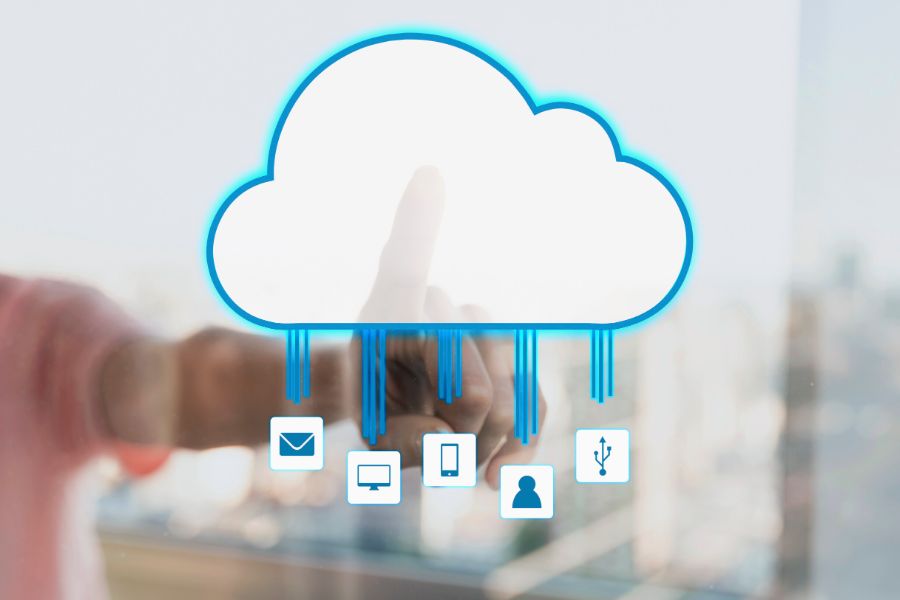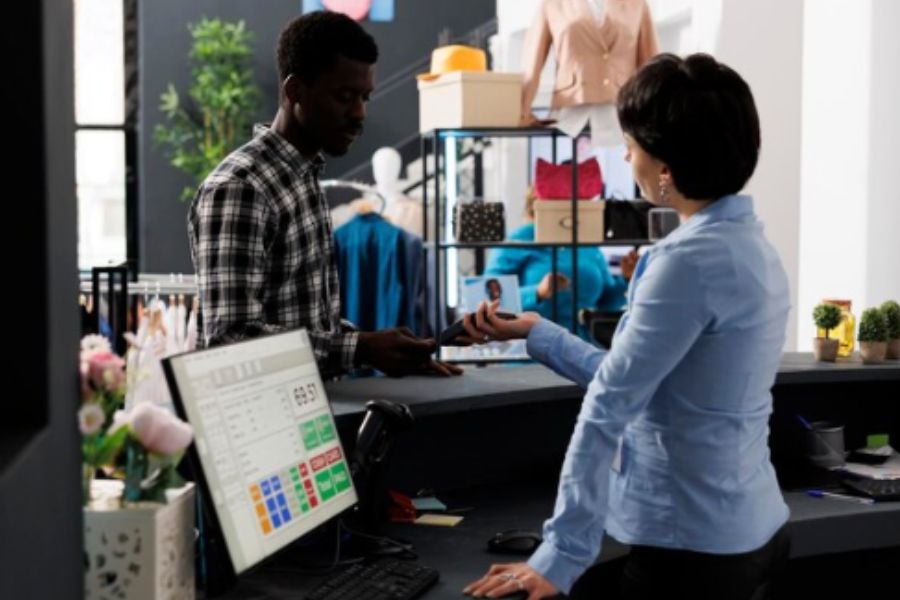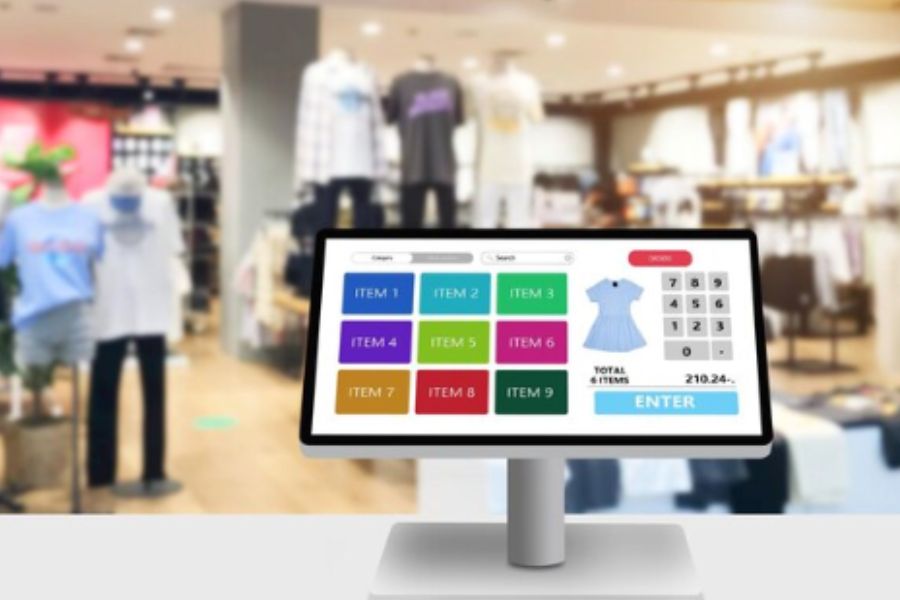Omnichannel retail is a strategy that provides customers with a seamless and consistent shopping experience across all channels, whether online, in-store, or on mobile devices. Cloud computing is a technology that offers on-demand access to computing resources over the internet, such as servers, storage, databases, and applications.
In this blog post, we will explore how cloud computing retail can help omnichannel retailers overcome some of the common challenges they face in the digital era and how they can leverage the benefits of cloud computing in retail to enhance their business performance and customer satisfaction. We will also show how ConnectPOS, a cloud-based POS system (point of sale), can support various O2O features, enabling retailers to bridge the gap between online and offline channels.
The challenges of omnichannel retail in the digital era
Omnichannel retail is not a new concept, but it has become more important and complex in the digital era, as customers have more choices, expectations, and preferences than ever before. Some of the challenges that omnichannel retailers face include:
Digital transformation and changing customer behavior
Digital transformation refers to the use of digital technologies to create or modify business processes, products, services, and customer experiences. This transformation has affected how customers shop and interact with brands, as they have more choices and convenience than ever before. Some of the changes in customer behavior are:
- Customers expect to shop anytime, anywhere, and on any device, such as desktops, laptops, tablets, smartphones, smartwatches, or smart speakers.
- They want personalized and relevant offers, recommendations, and interactions across all touchpoints, such as websites, apps, social media, email, chatbots, or stores.
- They also need a unified and engaging customer journey across all channels, which means that omnichannel retailers need to provide consistent and seamless information, functionality, design, and service across all channels.
- They also expect a holistic and memorable brand experience that reflects the values and identity of the brand.
The need for data integration and analytics
Data is essential for omnichannel retail, as it enables omnichannel retailers to understand their customers and improve their business outcomes. However, omnichannel retail also produces a lot of data from different sources, which can be challenging to integrate and analyze. Some of the benefits and challenges of data integration and analytics for omnichannel retail are:
- Benefits:
- Provide insights into customer behavior, preferences, needs, and feedback across different channels and stages of the customer journey.
- Help omnichannel retailers to create a single view of the customer and the business, and to personalize and optimize their offerings and interactions.
- Help omnichannel retailers to measure and improve their key performance indicators such as sales, conversion rates, customer satisfaction, or retention.
- Challenges:
- Can be fragmented, siloed, inconsistent, or incomplete if it is not integrated and analyzed properly.
- Require technical skills, tools, and infrastructure that may not be readily available or affordable for some omnichannel retailers.
- Involve ethical and legal issues such as data quality, security, privacy, and compliance that need to be addressed.
The complexity of inventory and order management
Inventory and order management are vital for omnichannel retail, as they influence customer satisfaction and loyalty. However, omnichannel retail also involves a high level of complexity and coordination between different channels and locations. Some of the aspects and challenges of inventory and order management for omnichannel retail are:
- Aspects:
- Manage their inventory across multiple warehouses, stores, and fulfillment centers, and ensure that they have the right products at the right place at the right time.
- Offer flexible and convenient order fulfillment options for customers, such as BOPIS (Buy Online, Pickup In-Store), BORIS (Buy Online, Return In-Store), SFS (Ship From Store), or curbside pickup.
- Challenges:
- Maintain accurate and real-time inventory visibility across all channels and locations.
- Optimize inventory allocation and replenishment based on demand and supply forecasts.
- Manage order fulfillment workflows and logistics efficiently and effectively.
- Ensure quality control and customer service throughout the order fulfillment process.
The difficulty of scaling and innovating
Omnichannel retail requires retailers to be agile and flexible in their operations. However, scaling and innovating can be difficult for omnichannel retailers, as they may encounter various challenges. Some of the factors and issues of scaling and innovating for omnichannel retail are:
- Factors:
- Scale up or down their operations based on demand fluctuations, seasonal variations, or market changes.
- Innovate and experiment with new products, services, features, or business models to stay competitive and relevant.
- Issues:
- May face technical limitations, legacy systems, organizational silos, cultural resistance, or regulatory constraints that hinder their scaling and innovating efforts.
- Adopt a culture of innovation and experimentation, and leverage technologies such as cloud computing, artificial intelligence, machine learning, or blockchain to facilitate faster and easier scaling and innovating.
One of the solutions that omnichannel retailers can use to address these challenges is cloud computing. Cloud computing can help omnichannel retailers reduce costs, improve efficiency, enhance security, and increase customer satisfaction. Let’s see how.

The benefits of cloud computing for omnichannel retail
Cloud computing can offer several benefits for omnichannel retail, such as:
Lower costs and higher scalability
Cloud computing can offer omnichannel retailers significant cost savings and scalability benefits. Cloud computing can help omnichannel retailers:
- Save money on IT infrastructure, maintenance, upgrades, licenses, and staff, as they can access the computing resources they need over the internet and pay only for what they use.
- Scale up or down their computing resources according to their needs without investing in additional hardware or software. This can help omnichannel retailers cope with demand fluctuations, seasonal variations, or market changes.
- Use microservices architecture, which allows them to customize their applications with lower cost and higher flexibility. Microservices are small, independent, and modular services that communicate with each other through APIs. Microservices can enable faster and easier development, deployment, testing, and maintenance of applications. For example, ConnectPOS is a cloud-based POS system that uses a microservices architecture to offer omnichannel capabilities for retailers.
Real-time data accessibility and synchronization
Cloud computing can also offer omnichannel retailers real-time data accessibility and synchronization across all channels and locations. Cloud computing can help omnichannel retailers:
- Access and synchronize their data across all channels and locations in real-time. This can help omnichannel retailers gain a single source of truth for their data, and provide consistent and accurate information to customers and staff.
- Integrate and update their data with various e-commerce platforms such as Magento, Shopify, BigCommerce, WooCommerce, etc., which enables them to manage multiple sales touchpoints from one dashboard. For example, ConnectPOS has real-time synchronization with these e-commerce platforms.
- Avoid issues such as out-of-stock situations, inaccurate product descriptions, inconsistent prices, or delayed orders, by ensuring that their product information, inventory levels, prices, promotions, orders, customers, loyalty programs, etc., are updated across all channels and locations in real-time.
Enhanced security and compliance
Cloud computing in retail can offer high levels of security and compliance for their data. Cloud service providers can:
- Typically offer security measures such as encryption, firewalls, authentication, and backup, which can help omnichannel retailers protect their data from unauthorized access, loss, or theft.
- Comply with various industry standards and regulations such as PCI DSS, GDPR, HIPAA, etc., which can help omnichannel retailers meet their legal obligations and customer expectations.
- Enable omnichannel retailers to use secure and compliant solutions such as ConnectPOS, which is PCI DSS compliant and supports GDPR compliance. ConnectPOS follows the security standards for handling credit card information and respects the privacy rights of customers in the European Union.
Improved customer satisfaction and loyalty
Cloud computing can also help omnichannel retailers deliver a better customer experience across all channels. Cloud computing can enable omnichannel retailers to:
- Offer personalized and relevant offers, recommendations, and interactions based on customer data and analytics. For example, ConnectPOS can integrate with AI-powered tools such as chatbots, voice assistants, or facial recognition to provide smart and convenient customer service.
- Offer faster and more convenient order fulfillment options such as BOPIS, BORIS, SFS, or curbside pickup. These options can increase customer convenience and satisfaction, as well as reduce shipping costs and delivery time. For example, ConnectPOS supports various order fulfillment options that allow customers to choose how they want to receive their orders.
- Offer contactless payment methods such as QR code scanning, NFC tapping, or mobile wallets to provide a safe and seamless checkout experience. For example, ConnectPOS supports contactless payment methods that allow customers to pay without touching any physical devices.
The best practices for adopting cloud computing in retail
To successfully adopt cloud computing for omnichannel retail, omnichannel retailers need to follow some best practices, such as:
Assess the current state and needs of the business
Before adopting cloud computing for omnichannel retail, omnichannel retailers need to evaluate their current situation and challenges and define their vision and objectives for the future. Omnichannel retailers need to:
- Evaluate their current IT infrastructure, applications, data, processes, and goals, and identify their pain points, gaps, and opportunities. This can help them understand their strengths, weaknesses, opportunities, and threats (SWOT).
- Determine their cloud readiness, budget, timeline, and expected outcomes. This can help them plan and prepare for the cloud migration process and set realistic and measurable expectations for the results.
- Use various tools and frameworks to assess their current state and needs, such as SWOT analysis, cloud readiness assessment, cloud migration checklist, or cloud ROI calculator.
Choose a reliable and reputable cloud service provider
After assessing their current state and needs, omnichannel retailers need to select a cloud service provider that can meet their specific needs, requirements, and expectations. Some of the factors and sources for choosing a reliable and reputable cloud service provider are:
- Omnichannel retailers need to consider factors such as the type of cloud (public, private, or hybrid), the service model (IaaS, PaaS, or SaaS), the features and functionalities, the security and compliance standards, the pricing and billing models, the customer support and service level agreements, and the reputation and reviews of the cloud service provider. These factors can affect the performance, cost, security, flexibility, and reliability of the cloud service.
- They can use various sources and criteria to choose a reliable and reputable cloud service provider, such as cloud comparison websites, cloud certifications, cloud case studies, or cloud testimonials.
Plan and execute a smooth migration process
Omnichannel retailers need to plan and execute a smooth migration process to the cloud that minimizes disruption, risk, and downtime. They need to:
- Choose a migration strategy that suits their needs and goals, such as lift-and-shift, re-platforming, or re-architecting. Lift-and-shift involves moving the existing applications and data to the cloud without any changes. Re-platforming involves making some minor changes to the applications and data to optimize them for the cloud. Re-architecting involves redesigning the applications and data to take advantage of the cloud features and functionalities.
- Prioritize the migration components based on their importance, complexity, and dependency. They need to identify which data, applications, or workloads are critical, simple, and independent and migrate them first. They also need to identify which data, applications, or workloads are non-critical, complex, and dependent, and migrate them later.
- Test the migration in a staging environment before moving to the production environment. They need to verify that the migrated data, applications, or workloads are functioning properly and securely in the cloud. They also need to compare the performance, cost, and reliability of the cloud-based system with the on-premise system.
- Monitor the migration progress and performance using various tools and metrics. They need to track the time, cost, quality, and efficiency of the migration process. They also need to measure the availability, scalability, security, and usability of the cloud-based system.
- Resolve any issues or errors that may arise during or after the migration process. They need to troubleshoot and fix any technical or operational problems that may affect the functionality or performance of the cloud-based system. They also need to communicate and collaborate with their cloud service provider and other stakeholders to ensure a smooth migration process.
Train and support the staff and customers on the new system
Omnichannel retailers need to train and support their staff and customers on how to use the new cloud-based system. Omnichannel retailers should:
- Provide clear and comprehensive documentation that explains the features and benefits of the new cloud-based system. The documentation should include user manuals, guides, tutorials, videos, webinars, FAQs, etc., that cover various topics such as how to access, use, manage, update, or troubleshoot the cloud-based system.
- Provide timely and responsive customer support via phone, email, chat, or social media. Customer support should be available 24/7 and assist with any questions or concerns that the staff or customers may have regarding the cloud-based system. Customer support should also collect feedback from the staff or customers on how to improve the cloud-based system.
- Provide incentives and rewards for the staff or customers who use the new cloud-based system. The incentives and rewards could include discounts, coupons, freebies, loyalty points, badges, etc., that encourage the staff or customers to adopt and adapt to the new cloud-based system. The incentives and rewards should also recognize and appreciate the staff or customers who use the new cloud-based system.
Conclusion
Cloud computing in retail is a powerful technology that can help omnichannel retailers overcome some of the common challenges they face in the digital era. Cloud computing can help omnichannel retailers lower costs, improve efficiency, enhance security, and increase customer satisfaction. To successfully adopt cloud computing for omnichannel retail, omnichannel retailers need to follow some best practices such as assessing their current state and needs, choosing a reliable and reputable cloud service provider, planning and executing a smooth migration process, and training and supporting their staff and customers on the new system. If you are interested in learning more about how cloud computing in retail can help your omnichannel business, please contact us today. We are happy to help you with your cloud journey.



